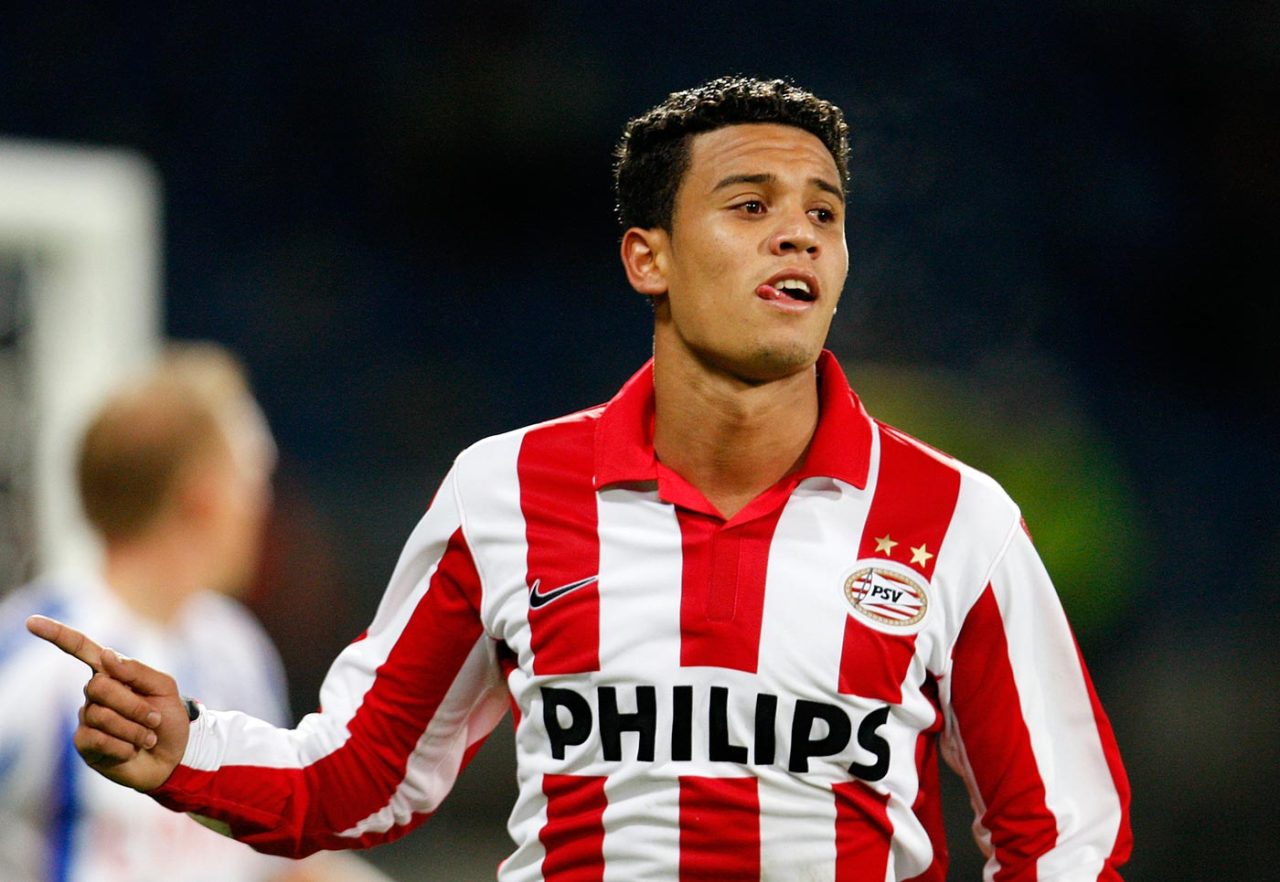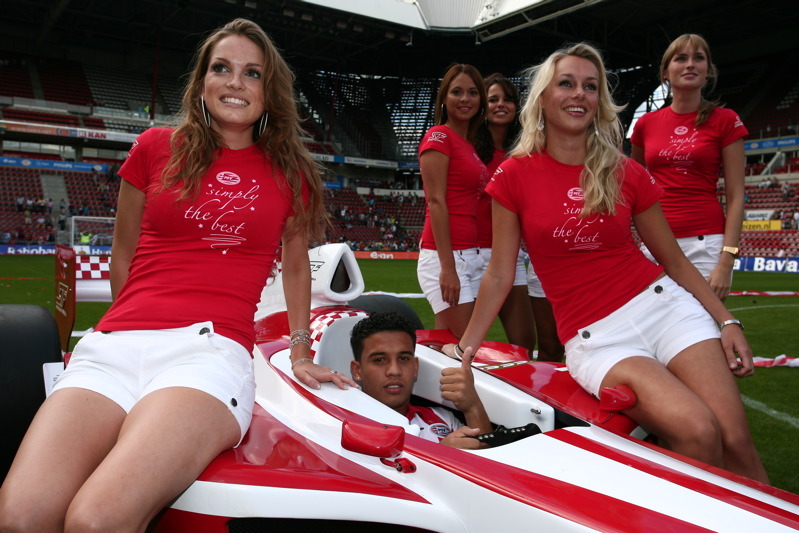Jonathan Reis: A Cautionary Tale for Would-be Ronaldos
Jonathan Reis: A Cautionary Tale for Would-be Ronaldos

Jonathan Reis: A Cautionary Tale for Would-be Ronaldos
For some players, their story is written on the pitch, hero or villain, infamy or inspiration, their career is defined by what they produce on the field. Brazilian striker Jonathan Reis has not been so fortunate. A player that seemed at one point destined to succeed compatriots Romario and Ronaldo as PSV Eindhoven’s star Brazilian, too much of his career has been spent trying to beat his demons rather than defenders.
Born in the Brazilian city of Contagem, a place noted for it’s heavy industry, he signed for PSV Eindhoven in 2007 as a fresh faced teenager.
Starting brightly with a goal in the Terborg youth Tournament against Boca Juniors, his problems at PSV began less than a year into his time at the club. Breaking his foot in March of 2008, Reis returned home to Brazil for his recovery (against the wishes of the club). Opting to prematurely remove the cast from his foot, it caused a secondary crack that ruled him out of the club’s pre-season schedule.
Demoted to the reserves, manager Huub Stevens made his feelings clear to the press: “You could say that he handled his injury unprofessionally,” Stevens said, before criticizing Vlado Lemić – the man behind Mateja Kezman’s move to the Philips Stadion – and now agent to the Brazilian youngster.
Lemić’s influence was often cited as one of the reasons behind the teenager’s wayward behaviour. Reis admitted chronic homesickness had made it hard for him to settle. Eager and able to cure the latter problem, PSV allowed Reis to join Brazilian side Tuipi, a club based in his home state of Minas Gerais. Now in familiar surroundings, it did not calm the youngster.
As stories filtered back to Eindhoven that he was regularly enjoying the region’s nightlife, Reis returned to his parent club – 5 days late. It was at this point, things took a more sinister turn after he was sent to hospital to undergo some routine checkups. Reports quickly surfaced that Reis had tested positive for cocaine.
“I was often alone when I did it [cocaine],” Reis admitted in an interview in 2010. Even after emerging from the hole of addiction, the forward admitted he found it hard to speak about. “The way I was living was amounting to nothing, and I would never amount to anything,” he added. Still keen to work with their wayward young star, PSV proposed that Reis would attend a rehabilitation clinic – an offer he initially declined.
Instead stating a desire to return home to Brazil, the club finally took a hard line approach. His contract was terminated, freeing him to return to Brazil. However the club explained to Reis that he would be forced to pay a transfer fee if he was to restart his career elsewhere.
Finally relenting, he entered a rehabilitation centre for two months, and saw psychologists several times a week – a subtle indication that his dabbling with the drug was not an occasional habit. “Once you’re hooked, you cannot help it. I want to warn people,” Reis told Voetbal International.
Now at an important crossroads, the appointment of Fred Rutten as coach birthed a fresh start for Reis. It came with certain conditions attached. Reis would now be watched by a number of the club’s staff in a bid to curb his wayward behavior. In a further bid to give him structure, Reis was also sent to live with the club’s Brazilian goalkeeper Cassio.
That summer saw a period of stability for the youngster, Rutten had seemingly quelled his wayward lifestyle and forged a strong framework of support. All too aware of how easy it would be for him to regress, September saw Reis stopped and charged with a charge of DUI. Three times over the legal limit, he was caught at 4:30 AM, 12 hours before PSV’s game against Roda JC.
Dropped, but not cut loose, Reis benefitted from a forgiving coach and an understanding media that seemed to sympathize rather than condemn. Granted a run in the first team following an injury to striker Marcus Berg, football was finally taking centre stage in the youngster’s life. A brace against relegation candidates VVV Venlo started a run of four consecutive games in which he scored.
Capped off with a hat trick against Feyenoord – his withdrawal in place of Danny Koevermans earned him a standing ovation from the Philips Stadion. Koevermans was keen to praise the forward in the wake of the game. Having provided a European stage for both Ronaldo and Romario, it now seemed that PSV had another deadly Brazilian striker.
With his demons now seemingly suppressed, Reis would now fall victim to another curse – that of injury. Playing against Roda JC, a collision with Roda’s goalkeeper, left him with a torn cruciate ligament, posterior cruciate and medial ligament. Enough to end a career, Reis instead headed to the United States in a bid to fix his body. Only just out of his teens, the youngster had already lived an eventful life.
Receiving both morale and financial support from PSV, their offer of a fresh three year contract was reviewed and retracted in the wake of his injury. Instead granted a six month extension, Reis and his agent politely declined the offer amid Vitesse declaring an interest in the player.
Dividing opinion, not for the first time in his brief career, Reis was being strongly criticized. Many felt he owed PSV a degree of loyalty after their repeated displays of faith. Others felt that Reis should look after himself. Vitesse initially removed themselves from discussions after complaints from PSV, before eventually signing Reis on December 4, 2011.
With so much written about his move, Reis remained notably quiet. Pushed on the issue, he opted for a diplomacy: “I have many friends in Eindhoven, but I am proud to play in the Vitesse jersey now,” Reis said. Making his debut for Vitesse 399 days after his last game for PSV, he opted to wear the number 13, perhaps a subtle taunt to lady luck and the cruel fate she had handed him.
Brought on to face PSV early in his Vitesse career, the fans who had once chanted his name now barracked him – even throwing bags of sugar onto the pitch, in reference to his previous drug problems.
Now at a new club hoping to once again get his career back on track, there was noticeable differences in the way Reis played. The explosiveness with which he announced himself at PSV was no longer there. A yard of pace had been lost in the injury and it made it difficult for Reis to reach those same levels
Stuttering through his two years at the club, in November of last year, Vitesse decided finally they had seen enough of Reis and dissolved his contract. Calling time on his Dutch adventure, Reis was finally granted his wish of returning home to Brazil permanently. Seeing in the new year still without a club, that changed on January 6 when Reis agreed to join Bahia – alongside former hot prospect Freddy Adu.
Yet in what is seeming to be a microcosm for his career, problems seemed instantaneous. Presented to the media, a smile etched across his face, his time at Bahia would be a little over two weeks. Officially citing a disagreement over two clauses that related to possibly suspending him in the future, Reis is now back home in Minas Gerais, with local club Tombense.
Now back where it began, the dazzling lights of PSV and Europe far in the distance, Reis faces an uncertain future. A cautionary that talent, Reis is a reminder to young hopefuls that talent is not all it takes to thrive in modern football.
Kristian Heneage contributes to ESPN, Four Four Two and The Guardian, amongst others. You can follow him on twitter @KHeneage. Comments below please.








